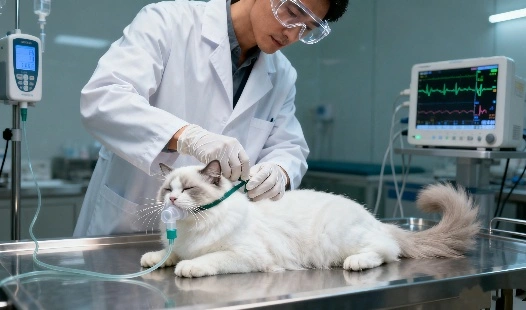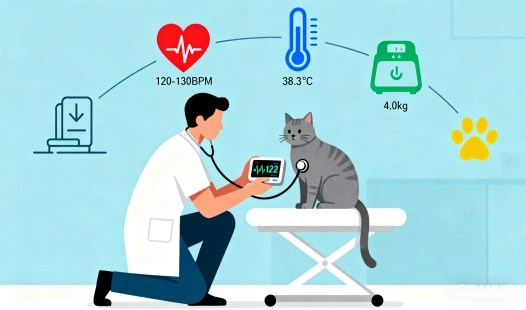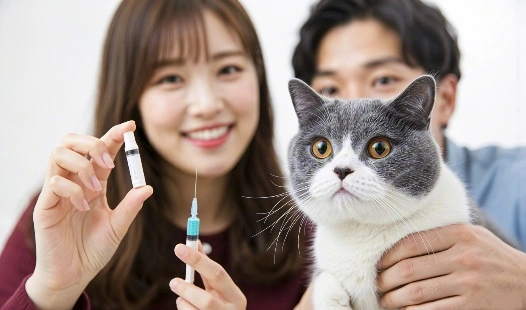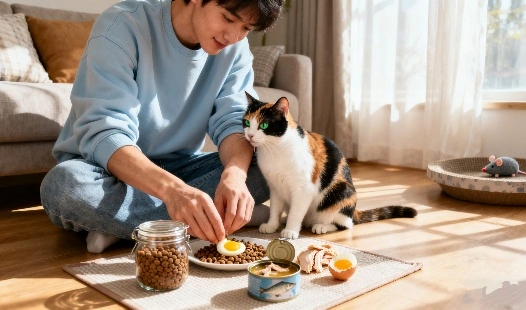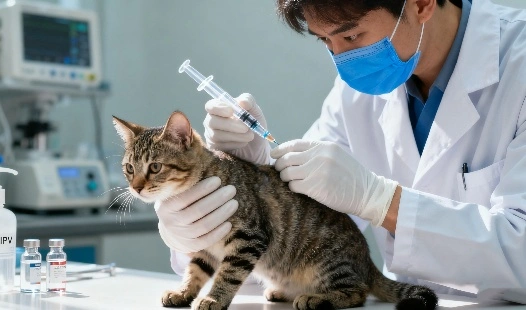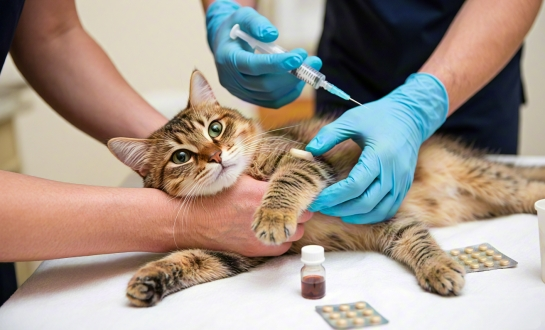Emotional Support for Your Cat During FIP Treatment
Recognizing Stress Signs in FIP-Affected Cats
The difficult and emotionally draining ailment known as Feline Infectious Peritonitis (FIP) affects cats and their owners alike, often creating feelings of helplessness and worry. Giving your feline friend emotional support is not only important for their well-being but also plays a vital role in their overall health and recovery while they go through therapy. By maintaining a calm and supportive environment, you can help reduce your cat's stress levels, which in turn may improve their response to treatment. This all-inclusive guide will go into several essential facets of supporting your feline companion through FIP treatment, with a strong emphasis on learning to recognize the subtle indications of stress, making the surroundings more relaxing and stable, and finding effective ways to strengthen the emotional connection with your cat during this challenging journey.
|
|
|
|
Recognizing Stress Signs in FIP-Affected Cats
Cats undergoing FIP treatment may exhibit various stress signs that can affect both their emotional and physical well-being. Identifying these signs early is essential, as it allows you to respond quickly with comfort and reassurance. By observing changes in behavior, such as restlessness, hiding, or reduced appetite, you can provide timely support and create a calmer environment to help your feline friend feel safe during their recovery.
Common Stress Indicators
- Changes in appetite
- Increased hiding behavior
- Excessive grooming or lack thereof
- Alterations in litter box habits
- Vocalization changes
Behavioral Changes to Watch For
During FIP treatment, your cat may display unusual behaviors such as:
- Increased aggression or fearfulness
- Lethargy or decreased interest in play
- Clingy behavior or social withdrawal
|
|
|
Creating a Calm Environment: Practical Tips
A serene environment can significantly impact your cat's stress levels during FIP treatment, promoting both comfort and recovery. Creating a peaceful atmosphere involves maintaining a quiet space, reducing loud noises, and providing cozy resting areas where your cat feels safe. Gentle routines, consistent care, and familiar surroundings can all contribute to lowering anxiety and helping your feline companion remain calm throughout the healing journey.
Optimize Your Cat's Space
- Designate a quiet area for rest and recovery
- Provide comfortable bedding and hiding spots
- Maintain a consistent temperature and low noise levels
Establish a Routine
Consistency can help reduce anxiety in cats undergoing FIP treatment. Try to:
- Keep feeding times regular
- Administer medication at consistent times
- Maintain a predictable schedule for playtime and cuddles
|
|
|
|
Bonding Activities to Boost Your Cat's Spirits
Engaging in positive interactions can help strengthen your bond and provide emotional support during this challenging time with the use of the GS-441524 drug. Simple activities such as gentle petting, interactive play, or simply spending quiet time together can greatly improve your cat's emotional well-being. These consistent moments of care reassure your feline companion and foster trust throughout the recovery process.
Gentle Play Sessions
Depending on your cat's energy levels, consider:
- Using interactive toys that don't require much movement
- Engaging in short, low-intensity play sessions
- Introducing puzzle feeders for mental stimulation
Comforting Touch
Physical contact can be soothing for many cats. Try:
- Gentle petting or brushing if your cat enjoys it
- Providing a warm, cozy lap for cuddling
- Using soft, reassuring voice tones during interactions
|
|
|
Conclusion
Supporting your cat emotionally during FIP treatment is a vital aspect of their overall care and recovery process. Emotional well-being is closely tied to physical health, and cats undergoing treatment often benefit greatly from a calm, reassuring presence. By recognizing stress signs such as changes in eating habits, withdrawal, or excessive grooming, you can take proactive steps to ease their discomfort. Creating a calm environment, free of loud noises and sudden changes, helps reduce anxiety and fosters a sense of security. Engaging in gentle bonding activities—such as soft petting, interactive play, or simply sitting quietly together—can provide comfort and strengthen your connection. Remember, each cat is unique, so observe your pet's responses carefully and adjust your approach accordingly. With patience, understanding, and consistent support, you can make a significant difference in your cat's emotional well-being throughout their treatment journey.
FAQ
1. How long does FIP treatment typically last?
FIP treatment duration can vary depending on the individual cat and the severity of the condition. Generally, treatment with the GS-441524 drug lasts for about 12 weeks, but some cats may require longer treatment periods.
2. Can I use aromatherapy to calm my cat during FIP treatment?
It's best to avoid aromatherapy during FIP treatment. Cats have sensitive respiratory systems, and strong scents may cause discomfort or stress. Instead, focus on creating a quiet, comfortable environment for your cat.
3. How can I manage my own stress while caring for a cat with FIP?
Caring for a cat with FIP can be emotionally challenging. Consider joining support groups for pet owners, practicing self-care, and maintaining open communication with your veterinarian. Remember, taking care of yourself is crucial for providing the best care for your cat.
Call to Action
As a company, BLOOM TECH is cognisant of the difficulties associated with FIP management in cats. This illness has long troubled both vets and cat owners. Rest assured that our top-notch GS-441524 drug formulations are made to assist your cat's treatment journey in a consistent and reliable manner, providing you with both comfort and assurance. Our superior products are the result of our extensive knowledge and competence in organic synthesis and pharmaceutical intermediates, which we have been developing for over ten years. Conformity with worldwide regulatory standards, stringent quality control procedures, and exhaustive testing are all applied to every batch. Helping veterinarians and cat owners all around the globe, BLOOM TECH is dedicated to improving the lives of feline patients by delivering safe and efficient solutions.
Help your kitty buddy overcome FIP. Investigate our selection of veterinary pharmaceuticals as a starting point for a full recovery. To ensure you make the right decision for your cat's health, our expert staff is here to provide personalised guidance and clear information.
Contact us today at Sales@bloomtechz.com to learn more about how our products can support your cat's FIP treatment. Together, we can give your furry companion the best chance at a healthy, happy life.
References
1. Pedersen, N. C. (2019). Feline infectious peritonitis: A review of clinical and therapeutic aspects. Journal of Feline Medicine and Surgery, 21(12), 1147-1165.
2. Addie, D. D. (2020). Feline infectious peritonitis: Advances in treatment and management. Veterinary Clinics of North America: Small Animal Practice, 50(5), 1133-1148.
3. Tasker, S. (2018). Diagnosis of feline infectious peritonitis: Update on evidence supporting available tests. Journal of Feline Medicine and Surgery, 20(3), 228-243.
4. Murphy, B. G., Perron, M., Murakami, E., Bauer, K., Park, Y., Eckstrand, C., ... & Pedersen, N. C. (2018). The nucleoside analog GS-441524 strongly inhibits feline infectious peritonitis (FIP) virus in tissue culture and experimental cat infection studies. Veterinary Microbiology, 219, 226-233.

Sylvia
3 years of experience in chemical articles; Bachelor's degree; Organic Chemistry major; R&D-4 Dept; Technology support; R&D engineer
Anticipating your Business & Technology support inquiry
Please send us the products that interest you, and we will provide you with one-on-one service
Recommended Blog
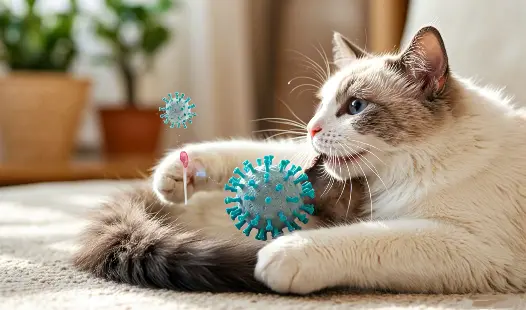
GS-441524 Demystified: A Complete Guide to Its Mechanism, Efficacy, and Safety
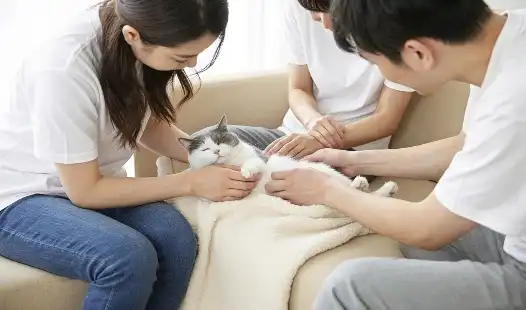
The Most Important Nursing Care Tips for Cats on GS-441524
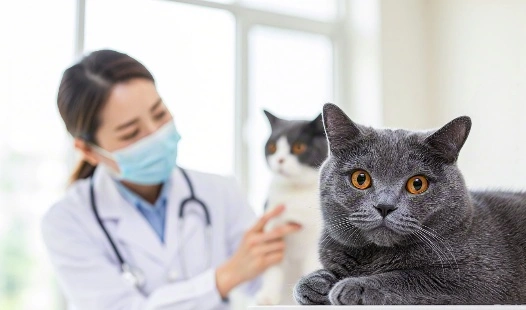
How to Choose a GS-441524 Brand and Supplier: 5 Key Factors to Consider
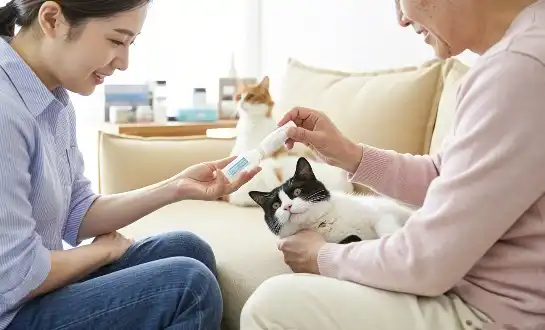
Does My Cat Need a Special Diet During GS-441524 Treatment?












